As the cycles of the heavens turn and the stars drift across the firmament, humanity has long sought to map the infinite constellations, weaving mythologies to anchor its existence within the cosmos. But, from the celestial vantage point, has the human endeavor ever truly registered? The presentation at Nan Ke Gallery during the Taipei Contemporary Art Fair in May is artist Zhou Meng’s profound meditation on this very inquiry.
Dominating the center of the booth was a comprehensive mural, Star Chart, which, like a mystical portal, opened a gateway to a celestial map within the confines of modern architecture. The expansive mural, evoking the primordial atmosphere of ancient cave paintings, was imbued with a sense of timelessness, as if it were a relic left by early humans in their quest to decipher the stars. Embedded within the mural were eighty-eight meteorite fragments, representing the constellations, using material that originated from the very cosmos they depict, thus completing the narrative both logically and aesthetically.
A recurring theme in Zhou Meng’s work is a deep-seated humility towards nature. This year, his exploration extends further, traversing multidimensional coordinates—ranging from the primordial wilderness to conceptual futures. Zhou navigates through “time,” spanning from the slumbering earth of fossils to the starry expanses of the galaxy, like a bard who collects, expresses, and sings the tales of existence.
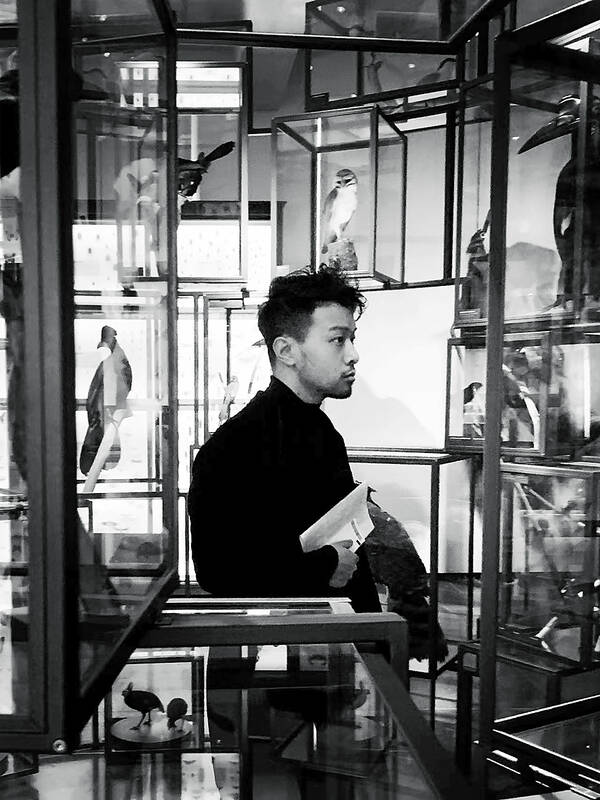
The Fading Lore series on paper illustrates the lingering shadows of forgotten deities, their forms evoked through traditional Chinese ink techniques, capturing the transient guardianship and overarching dominion that pervade all. These divine figures, repeated like ancient symbols, ascend to a grand metaphor that transcends time and space, reigning over humanity across epochs and cultures.
The relationship between humanity and nature, long depicted in traditional Chinese cosmology through the dynamic interplay of yin and yang, here calls for a renewed awareness of human insignificance, urging a posture of humility before the natural world. As Daoist philosophy teaches, “Heaven and Earth are not benevolent; they treat all things as straw dogs.” The gods of nature, devoid of conventional compassion, exist as a force to which humanity can only respond with reverence.
Following the Taipei fair, Nan Ke Gallery continued to showcase Zhou Meng’s evolving thought process at Tokyo Gendai in July, where his focus expanded from the divine and natural realms to a keen interest in anthropology. Here, human behavior became a fascinating subject of observation and analysis.
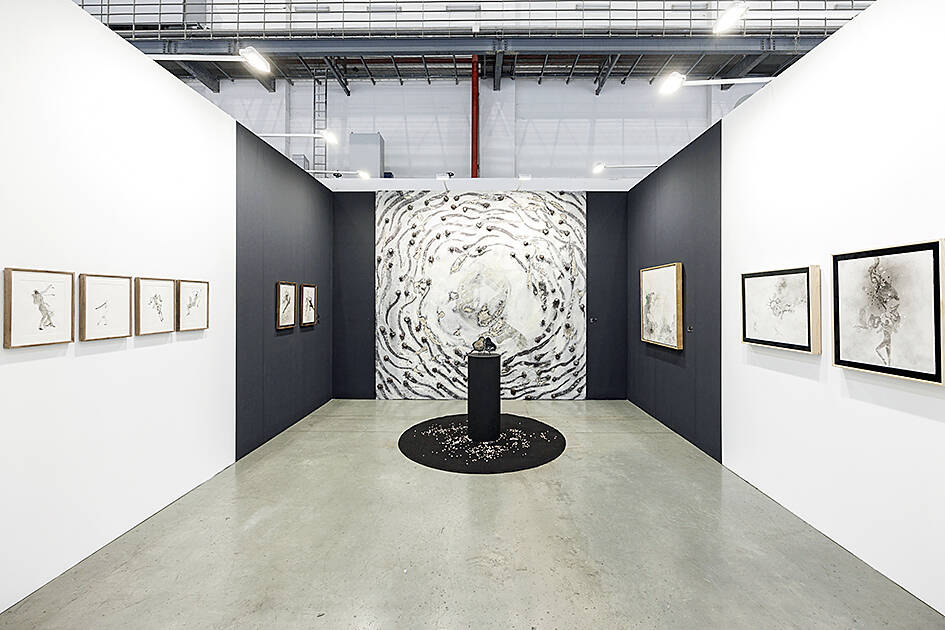
At the center of the exhibit stood the large-scale sculpture Mount Top, hinting at the origin of time and initiating a dialogue with nature. The mythical “Buzhou Mountain” from the Classic of Mountains and Seas, symbolizing the boundary between the divine and the mortal, intersected with the Western narrative of the Tower of Babel, creating a transcultural resonance. Beneath this sculpture, the mural transitioned into another dimension, opening a gateway to the heavens on the floor, blurring the physical limits of space and immersing the viewer in a transcendental experience. Time and space fold into one another, conveying an ancient call of naturalism while simultaneously fostering a deep, timeless empathy beyond the confines of reality.
Connecting to the continuum of human history, Zhou Meng’s Hero Game series juxtaposes prehistoric weapons with the modern game of “rock, paper, scissors,” offering a satirical commentary on warfare. The grandiosity and peril of war are reductively portrayed as mere human play, reinstating humanity’s humble place within the natural order. The absurdity of modern warfare, fueled by power struggles, is likened to the frivolity of entertainment culture.
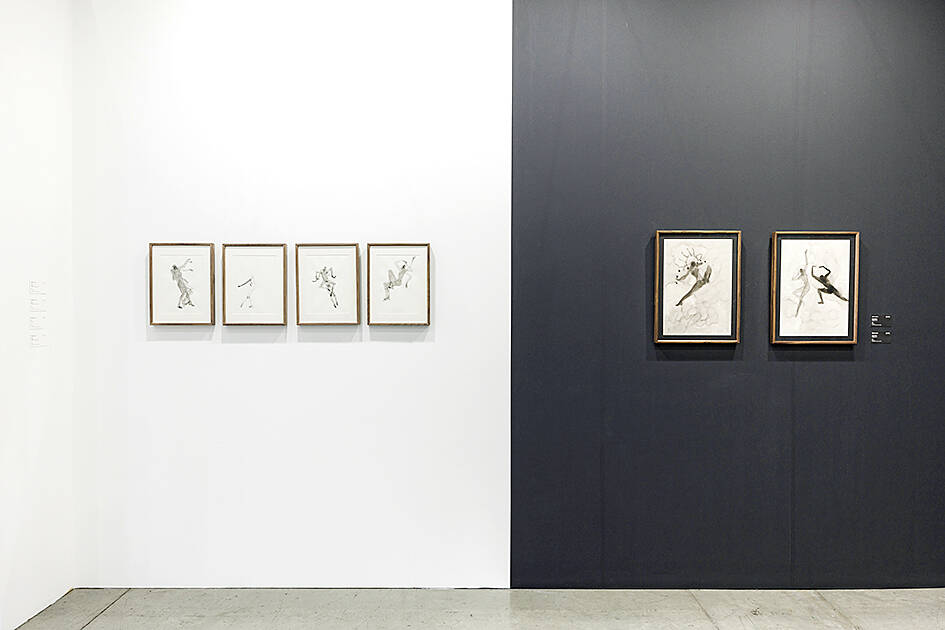
This anthropological exploration will continue in Zhou Meng’s upcoming solo exhibition,II Trovatore (The Troubadour), opening on September 13 in Munich, Germany, co-presented by the Blue Mountain Contemporary Art Foundation and Nan Ke Gallery. Here, Zhou refines his macro-philosophical inquiries into a narrative realm, using the troubadour as a central figure to weave together a global story. The exhibition simulates the structure of a poem, with natural spaces divided into chapters, allowing artworks, the artist, and the viewers to traverse and resonate with the unfolding saga.
Incorporating diverse materials imbues the exhibition with an innate sense of collection and exploration. Zhou Meng integrates his cherished artifacts, such as Madagascar raffia and ancient ceramic statues, into the narrative. Nature’s creations envelop human artifacts, re-nurturing them as fruits that connect disparate civilizations and propel them towards an unknown horizon.
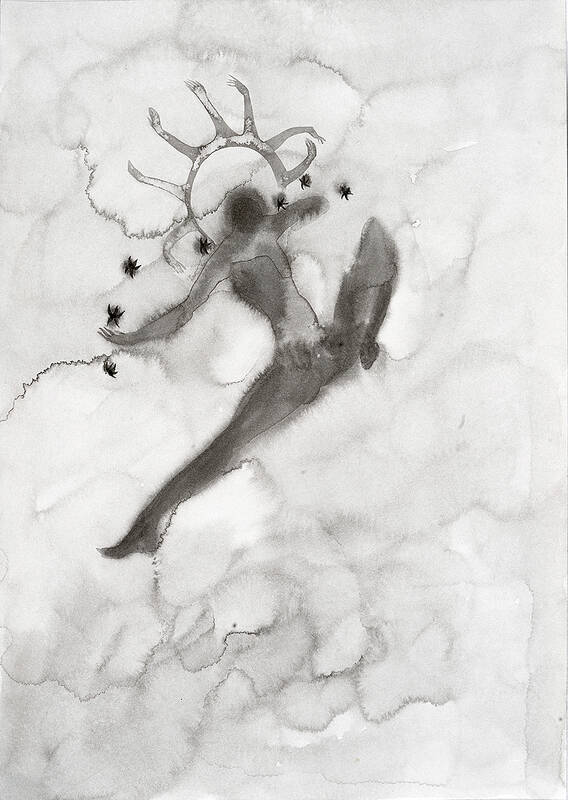
Seeds from different eras and regions converge here, growing into the river of life that envelops varied lands, linking human civilizations and their stories. As time flows, lives faded and become stones, passing through eons and transfering into shells on the shore. These shells, repurposed as currency in a new cultural context, embark on another cycle of circulation and rebirth. All things in the universe engage in this alternation and cycle, with the troubadour as the romantic thread tying together the complete narrative.
This October, Zhou Meng’s creative journey will once again take him to Taipei for a group exhibition presented by YIYUN ART at ART TAIPEI (Booth E04). In a migration full of possibilities and imaginations, the bard continuously collects the time fragments of the land, sings them, and then progresses and echoes them in the space.
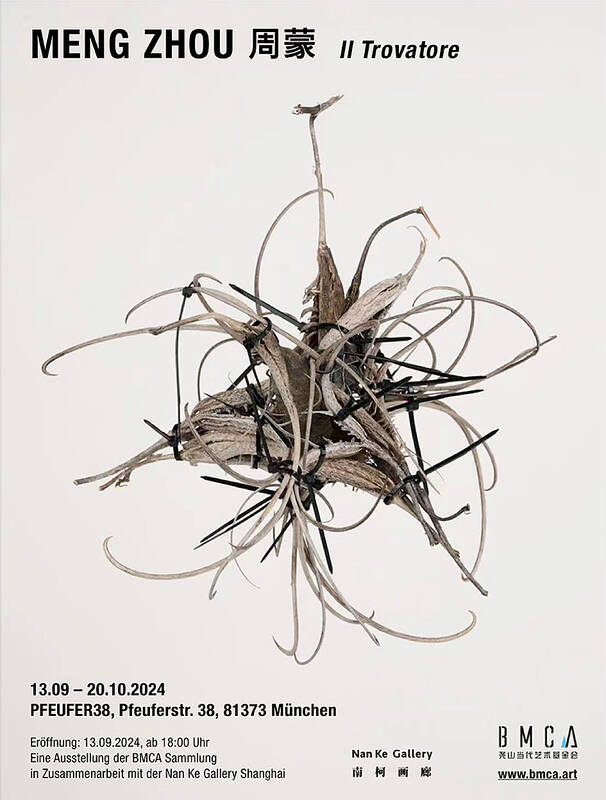
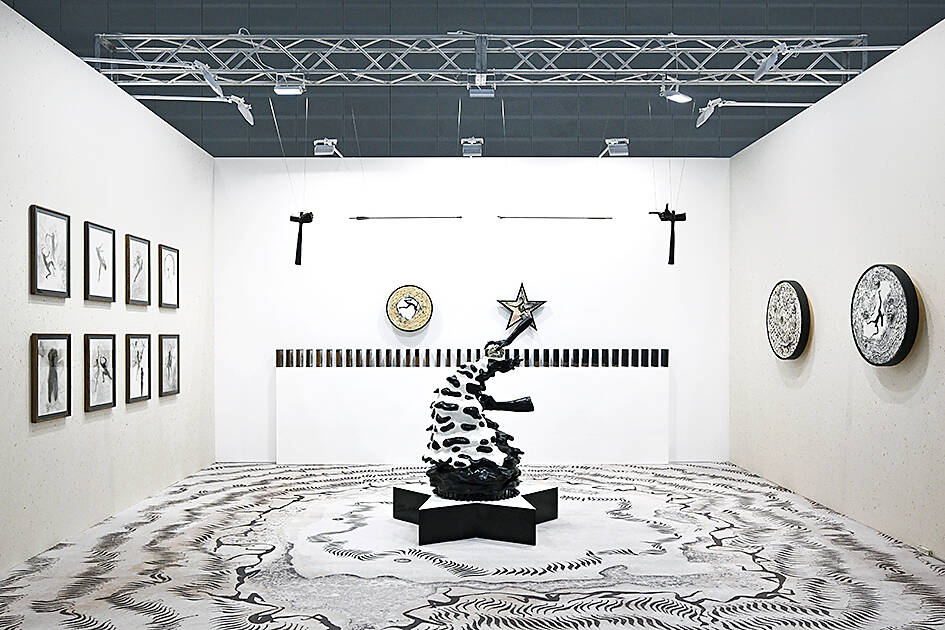

Kehinde Sanni spends his days smoothing out dents and repainting scratched bumpers in a modest autobody shop in Lagos. He has never left Nigeria, yet he speaks glowingly of Burkina Faso military leader Ibrahim Traore. “Nigeria needs someone like Ibrahim Traore of Burkina Faso. He is doing well for his country,” Sanni said. His admiration is shaped by a steady stream of viral videos, memes and social media posts — many misleading or outright false — portraying Traore as a fearless reformer who defied Western powers and reclaimed his country’s dignity. The Burkinabe strongman swept into power following a coup in September 2022

‘FRAGMENTING’: British politics have for a long time been dominated by the Labor Party and the Tories, but polls suggest that Reform now poses a significant challenge Hard-right upstarts Reform UK snatched a parliamentary seat from British Prime Minister Keir Starmer’s Labor Party yesterday in local elections that dealt a blow to the UK’s two establishment parties. Reform, led by anti-immigrant firebrand Nigel Farage, won the by-election in Runcorn and Helsby in northwest England by just six votes, as it picked up gains in other localities, including one mayoralty. The group’s strong showing continues momentum it built up at last year’s general election and appears to confirm a trend that the UK is entering an era of multi-party politics. “For the movement, for the party it’s a very, very big

ENTERTAINMENT: Rio officials have a history of organizing massive concerts on Copacabana Beach, with Madonna’s show drawing about 1.6 million fans last year Lady Gaga on Saturday night gave a free concert in front of 2 million fans who poured onto Copacabana Beach in Rio de Janeiro for the biggest show of her career. “Tonight, we’re making history... Thank you for making history with me,” Lady Gaga told a screaming crowd. The Mother Monster, as she is known, started the show at about 10:10pm local time with her 2011 song Bloody Mary. Cries of joy rose from the tightly packed fans who sang and danced shoulder-to-shoulder on the vast stretch of sand. Concert organizers said 2.1 million people attended the show. Lady Gaga

SUPPORT: The Australian prime minister promised to back Kyiv against Russia’s invasion, saying: ‘That’s my government’s position. It was yesterday. It still is’ Left-leaning Australian Prime Minister Anthony Albanese yesterday basked in his landslide election win, promising a “disciplined, orderly” government to confront cost-of-living pain and tariff turmoil. People clapped as the 62-year-old and his fiancee, Jodie Haydon, who visited his old inner Sydney haunt, Cafe Italia, surrounded by a crowd of jostling photographers and journalists. Albanese’s Labor Party is on course to win at least 83 seats in the 150-member parliament, partial results showed. Opposition leader Peter Dutton’s conservative Liberal-National coalition had just 38 seats, and other parties 12. Another 17 seats were still in doubt. “We will be a disciplined, orderly